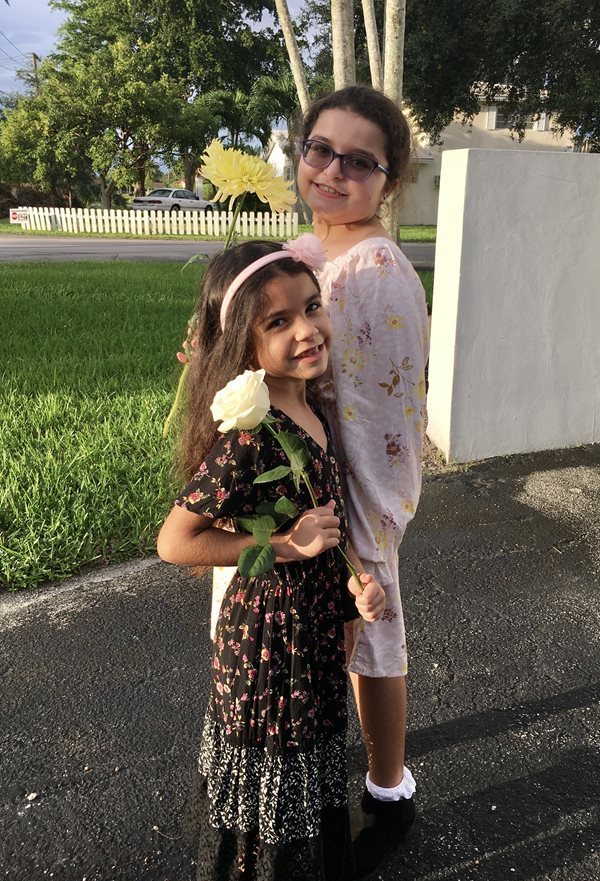The past year and a half has certainly posed challenges for all of us. Navigating life, work and parenting through a global pandemic isn’t easy, especially with children quarantined and unable to attend school for so long, the absence of social time, and having to distance from even our own families. When summer started, I thought we were finally beginning to emerge from what I hoped was the worst of this season we won’t soon forget, but I was wrong. My family and I were infected with COVID-19 in late July and our symptoms continued well into August, but thankfully my husband and I are vaccinated. The Delta variant, which poses a serious risk to the unvaccinated, continues to spread nationwide, so it’s a good idea to follow CDC guidelines throughout the rest of the year.
As a parent, I’ve come to realize we’re more resilient than we give ourselves credit for. Now, I look ahead with hope even as we recover from recent losses and continue to minimize risk for our families.
Losing my Father-in-Law
During the past year, my family had to deal not just with the effects of COVID-19, but with the loss of loved ones. My father-in-law suffered a stroke in August 2020, and he spent weeks in the hospital as his condition worsened and we were unable to visit, hug and kiss him, or even assist with his care. We’d set up Zoom calls so we could talk to him and reassure him that we were there to support him even though we could not visit in person due to hospital safety precautions. My husband and I made sure our two daughters, ages 7 and 9, were on the Zoom, too, so he could hear them and see their sweet faces. We hoped this would cheer him up and strengthen his will to live, as they were his only grandkids.
Fast forward a couple of months and after many setbacks and a short stint in a rehab facility, he was sent home, but wound up in another hospital two days later where he passed away in October. My father-in-law, Jose “Pepe” Santamaria, was a caring soul, who was always there to lend a helping hand, loved to gather with family, sing songs he learned in Cuba, and he treasured his time with his two granddaughters. When he passed, it was hard to tell the girls. They saw how much Abu had been suffering, so we told them he was very sick, and his body was too weak, so it was time for him to go. Heaven gained another angel and he’d always be here to look out for them and the rest of the family, I said. The thing is that even when your loved one is ill, you don’t want to let go. When the viewing and burial took place, my husband and I made the decision to not take the girls to the viewing because it was a very emotional time, as everyone said their goodbyes. But we did take them to the burial the following morning, where they placed flowers at the gravesite, shed some tears, and got the support they needed from extended family. This was all new to them, and they didn’t really understand the feelings they were experiencing, so we talked about it, and we answered their questions as best we could.
Following the passing of my father-in-law, my husband also lost a cousin to COVID-19 in December. Then my stepdad, Abuelo Jorge, was diagnosed with lymphoma and there was a time where we didn’t know what would happen, but we prayed to God every night together and asked for his healing. Thankfully, my stepdad is responding well to treatments and is feeling much stronger, so my girls have been able to spend time with him and I know how much they treasure those moments — now more than ever.
How to Speak to Your Kids About Death
There are many factors involved in how your kids process loss, such as how close they were to the person who passed away, their age and maturity level, and their support system. But it’s important to let your child know what to expect, so they’re prepared for what’s to come. Here are a few things you can do to help your children:
- Break the news in a caring way using clear and concise words that they will understand
- Let them take a little bit of time to process the news and react to what you’re saying
- Comfort them and let them know you’re there to listen to what they have to share
- Explain to them your family traditions when it comes to funerals, so they understand what’s taking place
According to Psychology Today, it’s OK to cry together, say “I don’t know” when you don’t have all the answers, and use the words dead or died because being realistic helps in the grieving process. Also, be truthful about what happened so your children understand what’s going on.

Steps You Can Take After the Funeral
- Check in on your children and make sure they are doing well
- Comfort and reassure them if they’re still grieving
- Share memories about the person, look at old photos together, create a memory book, and write down some favorite stories
- Give your children some time to heal, but if you notice they are sad or upset, seek the help of a professional counselor
One thing I like to do is create a photo book online that’s filled with our favorite photos. I’ll ask family members to share their photos, too, so I can design the book. Then I order multiple copies to gift to our immediate family. This is a great way to remember and honor your loved one. When you’re thinking about them, pull out the book, and relive the wonderful memories you shared!